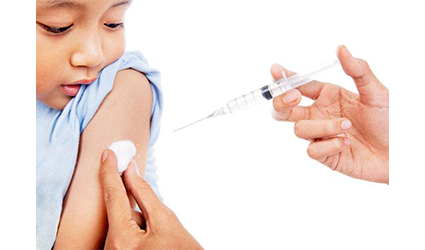Debunking Myths about Vaccines and Autism
August 28, 2018
Source: Ddu
 853
853

To understand the relation between vaccines and autism, one must understand what Autism Spectrum Disorder is. Autism Spectrum Disorder (ASD) is a disability encountered by children and young adults during their developmental stages. It results from discrepancies in the functions of the brain.
The communication, interaction, behavior and learning of an autistic person are affected. There are differences in the above functions among autistic people as well. The CDC’s Autism and Developmental Disabilities Monitoring Network data shows that nearly one in 68 children have ASD in all groups and ethnicities in the United States.
Concerns have been raised in the past over the association between ASD and vaccines that are given to children. These queries have engendered from a 1998 paper published in the Lancet by Dr. Andrew Wakefield and his colleagues, which examined 12 children referred to the Royal Free Hospital and School of Medicine who had been long suffering from enterocolitis and regressive developmental disorder. The authors noted that the parents of 8 out of 12 children linked their hampering of acquired skills, like language, to the MMR vaccination. The study concluded that “likely environmental causes” (i.e. the vaccine) were linked to the occurrence of the gastrointestinal illness and the regression in development.
12 years later, the Lancet withdrew the paper from its journal after it was proven that “several elements” from the paper “are incorrect, contrary to the findings of an earlier investigation.”
Several later studies proved that these claims are false and the study had numerous flaws. Moreover, a 2011 study by the Institute of Medicine (IOM) showed that eight vaccines administered to children and adults were found to be harmless, excluding rare exceptions.
A study conducted by the CDC in 2013 complemented the above research proving that ASD is not linked with vaccines. The focus of this study was on the antigen count in the vaccines given to children up to two years of age. It was found that the end count of antigen in children having ASD and those devoid of ASD remained the same whether they were immunized or not.
Several allegations linking vaccines to autism have also been based on the presence of a much-studied ingredient, thimerosal. Thimerosal is a preservative made from mercury which is specially combined to avert adulteration of multiple dose vaccine ampoules. However, umpteen studies have concluded that ASD is not a resultant of thimerosal use in vaccines.
The IOM conducted a thorough review in 2004 which revealed that “the evidence favors rejection of a causal relationship between thimerosal-containing vaccines and autism.”
The CDC has either funded or conducted nine research studies since 2003, which have failed to find any connection among vaccines that have thimerosal and ASD, and also no association of the measles, mumps, and rubella (MMR) vaccine with ASD in immunized kids.
In a bid to limit the contact of the country’s children with any kind and all amounts of mercury, from the period spanning 1999 to 2001, all vaccines meant for children, apart from few flu vaccines, were not added with thimerosal or its amount in the vaccines was largely reduced. This exercise was conducted, with a preventive motive, before the safety of thimerosal was proved.
Following are few synopses of studies related to thimerosal conducted or funded by the CDC:
A study evaluating the relation between brain function, behavior, language, coordination and thimerosal: It assessed children who were exposed to thimerosal early after birth and the neuropsychological effects were observed after 7-10 years. It concluded that there are no links between thimerosal and intellectual capabilities, speech and memory, fine motor skills. The study found no associations with thimerosal and general intellectual functioning, verbal memory, fine motor coordination, decision-making, working, conduct regulation and language. However, an insignificant link was observed between thimerosal exposure early in life and occurrence of tics in boys but not in girls.
Contact with Thimerosal in the womb and in infancy: This research studied exposure to Thimerosal during gestation and in infant life via vaccines and immunoglobulins and risk of Autism. Children having autism were compared with those not having it, and the exposure of the child in the womb and also in infancy to thimerosal via vaccines was observed. The study findings revealed no variations in exposure to thimerosal among children having and devoid of Autism.
Neuropsychological Performance 10 Years After Immunization in Infancy With Thimerosal-Containing Vaccines: This was a follow-up study conducted in Italy which was funded by the CDC which contrasted neuropsychological results in children grouped randomly to be administered either diphtheria-tetanusacellular pertussis vaccine (DTaP) containing thimerosal or DTaP containing 2-phenoxyethanol up to one year of age. Both the divisions were tested for 24 neuropsychological outcomes ten years post the vaccination. Findings concluded thimerosal to be harmless to children.
Long-term results of thimerosal exposure in US, UK, and Denmark: Major epidemiological studies that evaluated information from the US health maintenance organizations, the UK General Practice Research Database, and the whole nation of Denmark did not reveal a link between exposure to vaccines containing thimerosal and autism.
Presently, thimerosal is present in flu vaccines which are enclosed in multiple dose ampoules. There are few substitutes which offer no addition of thimerosal to it.
Other vaccine additives have also been blamed to be causing ASD but there has been no evidence to prove so.
By DduRead more on
- Things to Know before Buying Newborn Baby Incubators March 31, 2022
- Testing Set to Begin on a Coronavirus Vaccine May 27, 2020
- Highly Resistant Food Poisoning Bug Responds to Antibiotics September 6, 2018
- Smartphone Based Diagnosis to Identify Mosquitoes Transmitting Infection September 5, 2018
- 3 Natural Plant Extracts Manufacturers on Drugdu.com September 4, 2018
your submission has already been received.
OK
Subscribe
Please enter a valid Email address!
Submit
The most relevant industry news & insight will be sent to you every two weeks.



